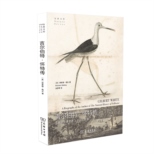显示全部内容简介
Among writers of his generation, Jack London (1876—1916) probably had the most dramatic career. Pulling himself up from the bottom of society, he became the first millionaire author in America by sheer will and hard work. Though he professed to be a socialist and declared "class war" on the capitalist system, he heartily enjoyed all that money could buy and squandered several fortunes like a true hedonist. The most popular writer of his time, he wrote too much too hurriedly: a total of forty-eight books within the short span of sixteen years (nineteen novels, eighteen books of short stories and articles, three plays and eight autobiographical and sociological books). As a result, some of his polemic work soon became dated and his fame declined after his death. Yet, discarding the "potboilers" and sifting through the confused ideology, today's readers the world over still find London's best books full of vigor and meaning, and look upon him as one of their best-loved American writers.
Jack London was born in San Francisco on January 12, 1876, the illegitimate son of an itinerant astrologer of Irish de scent and a mother who earned her living as a spiritualist. When Jack was eight months old, his mother married John London, a migrant worker of English extraction, and named the boy John Griffith London. From the time little Jack began to notice things, there never was economic security in the family. At the age of ten, he was selling newspapers in the streets. Before he turned thirteen he had left school to win bread for the family. As he recalled later, "My place in society was at the bottom. Here life offered nothing but sordidness and wretchedness, both of the flesh and the spirit ..."(What Life Means to Me, The Cosmopolitan, 1906) Nevertheless, young Jack, who had inherited his father's strong physique, imaginative brains and good looks, was "early resolved to climb". Whether fighting for his newspaper routes in 'Frisco or raiding oyster beds in the Bay, whether sailing on a sealing cruise to the Far East or camping among goldminers in the Klondike, young Jack always won out by dint of his prowess, wits and sheer brute force. "Exulting in my young life, able to hold my own at work or fight, I was a rampant individualist ... I was a winner." (How I Became a Socialist, The Comrade, 1903)
Despite such bravado, however, he found he could not climb up the social ladder by physical strength. Fourteen hours' work a day left him too tired to do anything else,sailing was interesting but unprofitable; and not everyone found an El Dorado in Alaska. He resolved to make up for his loss of formal education and try his hand at writing. He finished high school in one year and went on to study at the University of California for a semester; he read voraciously, from literary classics to popular stories, from Locke, Hobbes and Hume to Spencer, Nietzsche and Marx; he wrote short stories for fifteen hours a day and sent them steadily to all kinds of magazines, which as steadily rejected them until To the Man on Trail was accepted by a magazine in San Francisco in 1898. When his first collection of short stories The Son of the Wolf was published in 1900, Jack London was well on his way to fame and fortune.
The Call of the Wild (1903), which established London's reputation as an author, is generally regarded as the best of his novels. It was written at a time when London was in the throes of one of his not infrequent periods of depression, and was meant to be a tale of 4,000 words. When the "quota" was completed in four days, the writer was surprised to find that the story had only just begun and was carrying him far beyond the original theme and scope. So he wrote on and on, totally absorbed in the fate of Buck, a cross between a St. Bernard (a powerful, intelligent dog originally bred to rescue travellers lost in the Alpine snows) and a Scottish sheep dog (known for its cleverness and agility).When Buck finally shed his ties with civilization and became the leader of a wolf pack in arctic Alaska, the tale had turned into a novel and the author had spent a hectic month writing it. The book was an instant success.
What is there in this dog story, then, that makes it a classic of world literature? There is, as is usual with most of London's works, a gripping plot full of action and violence, as well as the exotic flavor of the Far North. More than anything else,there is a moving tug of war in Buck between his ties with man and "the call of the wild" that makes this "primordial beast" almost human, so that the reader feels for him through every step of his transformation. Indeed, the discerning reader could not fail to sense, through Buck's vicissitudes and torments, the excruciating ambivalence of man's attraction to and alienation from society as long as the law of EAT OR BE EATEN holds sway.
As a companion piece to The Call of the Wild, White Fang (1906) tells an interesting tale of the reverse transformation of an arctic "wolf" (actually three quarters wolf and one-fourth dog) into a domesticated creature called White Fang. Apart from vivid details about the Alaskan wilderness, the unfolding story reveals that the law of EAT OR BE EATEN applies not just to the jungle, but symbolically to the human process of domestication. However well he responded to "love", "White Fang knew the law well- to oppress the weak and obey the strong", for this was the greatest lesson London had learnt from his own experience and was to emphasize in all his major works. Taken together, then, The Call of the Wild and White Fang make up not only a complementary set of thrilling adventure stories, but actually represent London's narrative art and social philosophy at their most vivid.
It is to be noticed, however, that even in London's finest writings, there is an unmistakable obsession with the jungle law. Whether it is Buck or White Fang, the ruthless captain of The Sea Wolf(1904) or his own image in Martin Eden (1909), they are all. "primordial beasts", or Nietzschean heroes. Even when he is depicting the misery of the toiling masses as in The People of the Abyss (1903) or their rebellion against their oppressors as in The Iron Heel (1908), London could never shake off his Nietzschean admiration for the strong, or his condescending pity for the weak. He was always "proud to be one of Nature's strong-armed noblemen", though he knew that his place should be with people of his own class. That may explain why as the most successful writer of his time he was also the most lonely and tragic- a tragedy born of conflicting values and ideals that would not let him be either Buck or White Fang in real life, but finally drove him to despair and suicide at the early age of forty.
Pan Shaozhong (潘绍中)
Jack London was born in San Francisco on January 12, 1876, the illegitimate son of an itinerant astrologer of Irish de scent and a mother who earned her living as a spiritualist. When Jack was eight months old, his mother married John London, a migrant worker of English extraction, and named the boy John Griffith London. From the time little Jack began to notice things, there never was economic security in the family. At the age of ten, he was selling newspapers in the streets. Before he turned thirteen he had left school to win bread for the family. As he recalled later, "My place in society was at the bottom. Here life offered nothing but sordidness and wretchedness, both of the flesh and the spirit ..."(What Life Means to Me, The Cosmopolitan, 1906) Nevertheless, young Jack, who had inherited his father's strong physique, imaginative brains and good looks, was "early resolved to climb". Whether fighting for his newspaper routes in 'Frisco or raiding oyster beds in the Bay, whether sailing on a sealing cruise to the Far East or camping among goldminers in the Klondike, young Jack always won out by dint of his prowess, wits and sheer brute force. "Exulting in my young life, able to hold my own at work or fight, I was a rampant individualist ... I was a winner." (How I Became a Socialist, The Comrade, 1903)
Despite such bravado, however, he found he could not climb up the social ladder by physical strength. Fourteen hours' work a day left him too tired to do anything else,sailing was interesting but unprofitable; and not everyone found an El Dorado in Alaska. He resolved to make up for his loss of formal education and try his hand at writing. He finished high school in one year and went on to study at the University of California for a semester; he read voraciously, from literary classics to popular stories, from Locke, Hobbes and Hume to Spencer, Nietzsche and Marx; he wrote short stories for fifteen hours a day and sent them steadily to all kinds of magazines, which as steadily rejected them until To the Man on Trail was accepted by a magazine in San Francisco in 1898. When his first collection of short stories The Son of the Wolf was published in 1900, Jack London was well on his way to fame and fortune.
The Call of the Wild (1903), which established London's reputation as an author, is generally regarded as the best of his novels. It was written at a time when London was in the throes of one of his not infrequent periods of depression, and was meant to be a tale of 4,000 words. When the "quota" was completed in four days, the writer was surprised to find that the story had only just begun and was carrying him far beyond the original theme and scope. So he wrote on and on, totally absorbed in the fate of Buck, a cross between a St. Bernard (a powerful, intelligent dog originally bred to rescue travellers lost in the Alpine snows) and a Scottish sheep dog (known for its cleverness and agility).When Buck finally shed his ties with civilization and became the leader of a wolf pack in arctic Alaska, the tale had turned into a novel and the author had spent a hectic month writing it. The book was an instant success.
What is there in this dog story, then, that makes it a classic of world literature? There is, as is usual with most of London's works, a gripping plot full of action and violence, as well as the exotic flavor of the Far North. More than anything else,there is a moving tug of war in Buck between his ties with man and "the call of the wild" that makes this "primordial beast" almost human, so that the reader feels for him through every step of his transformation. Indeed, the discerning reader could not fail to sense, through Buck's vicissitudes and torments, the excruciating ambivalence of man's attraction to and alienation from society as long as the law of EAT OR BE EATEN holds sway.
As a companion piece to The Call of the Wild, White Fang (1906) tells an interesting tale of the reverse transformation of an arctic "wolf" (actually three quarters wolf and one-fourth dog) into a domesticated creature called White Fang. Apart from vivid details about the Alaskan wilderness, the unfolding story reveals that the law of EAT OR BE EATEN applies not just to the jungle, but symbolically to the human process of domestication. However well he responded to "love", "White Fang knew the law well- to oppress the weak and obey the strong", for this was the greatest lesson London had learnt from his own experience and was to emphasize in all his major works. Taken together, then, The Call of the Wild and White Fang make up not only a complementary set of thrilling adventure stories, but actually represent London's narrative art and social philosophy at their most vivid.
It is to be noticed, however, that even in London's finest writings, there is an unmistakable obsession with the jungle law. Whether it is Buck or White Fang, the ruthless captain of The Sea Wolf(1904) or his own image in Martin Eden (1909), they are all. "primordial beasts", or Nietzschean heroes. Even when he is depicting the misery of the toiling masses as in The People of the Abyss (1903) or their rebellion against their oppressors as in The Iron Heel (1908), London could never shake off his Nietzschean admiration for the strong, or his condescending pity for the weak. He was always "proud to be one of Nature's strong-armed noblemen", though he knew that his place should be with people of his own class. That may explain why as the most successful writer of his time he was also the most lonely and tragic- a tragedy born of conflicting values and ideals that would not let him be either Buck or White Fang in real life, but finally drove him to despair and suicide at the early age of forty.
Pan Shaozhong (潘绍中)





